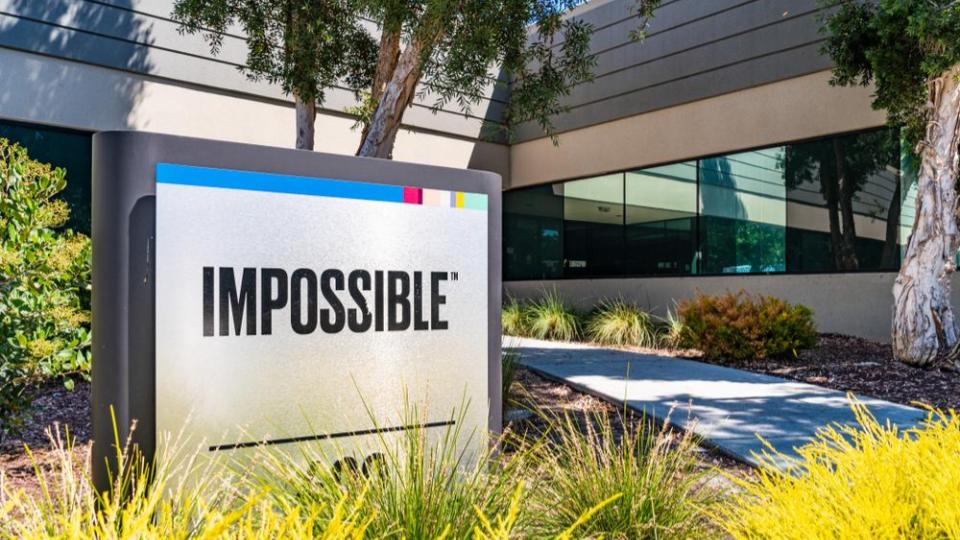Cautious Optimism on Tech’s Role in Food Innovation
Mai Sistla / Mar 10, 2022Mai Sistla is the Deputy Director of the Aspen Tech Policy Hub.

In early January, a video clip from the British daytime television talk show This Morning made the rounds on my Twitter newsfeed. In the clip, hosts Alison Hammond and Dermot O’Leary are comparing the taste of vegan chicken nuggets against real ones. Their reactions warranted many a retweet on Twitter, with Alison Hamond exclaiming, “I can’t believe they taste like chicken! What’s the point of eating chicken when you can eat these?”
It was an inspiring moment for those of us who are interested in the intersection of food and technology. “Food tech” firms like Impossible Foods and Beyond Meats have taken “faux meat” from an obscure food item that only the most radical environmentalists purchase to a grocery item for everyday consumers featured on morning talk shows.
These companies have rightly concluded that we are in a bit of a conundrum when it comes to the state of meat, seafood, and dairy production. There is more evidence than ever that the current methods of producing meat, seafood and dairy are harming the environment and can have grave consequences on public health. Health experts at the United Nations warn that modern animal farming processes have escalated the risk of new pandemics, scientists are concerned with the spread of antibiotic-resistant bacteria in factory farms that could impede our ability to cure bacterial infections, and experts state that fishing at current levels will lead to the extinction of major seafood species by 2048.
Yet at the same time, humanity’s demand for meat, seafood and dairy is higher than ever. Global meat consumption hit an all-time high in 2021, largely due to increases in global wealth that make purchasing meat and seafood more financially feasible. In high-income countries like the United States, overall consumption has remained at a steady-state for decades and shows no signs of waning despite the environmental warnings.
Venture capitalists and tech companies have seized on this tension as an opportunity, promising to reimagine our food systems. Since 2016, venture capitalists have invested about $4.2 billion in the alternative protein space; about half of this was invested in 2020 alone. These meat substitutes include both “plant-based” substitutes produced by food tech companies like Impossible Foods, and “lab-grown” substitutes that are just beginning to enter the market and are grown from cultures in a lab. There’s been so much hype around the promise of this technology that even Bill Gates has said that high-income countries should plan to move towards eating synthetic beef in the upcoming decades.
The hype is not without its critics. Some say that a movement that relies on technologically advanced methods of producing meat and dairy will just lead to corporate conglomeration, with the Impossible Foods and Beyond Burgers of the world taking reign of the meat, seafood and dairy industry. Others question the ability of lab-grown meats to scale, or the willingness of individuals to meaningfully substitute real meat and seafood with synthetic options.
We are just at the beginning of finding innovative solutions to fix our food systems, and it seems to me that these critiques are perhaps too pessimistic. The meat industry is already dominated by a few firms, with two-thirds of US meat production controlled by just six companies. Food tech companies like Impossible Foods are providing much-needed competition in this space. Americans seem willing to transition into protein alternatives that are comparable to the real thing. Scientists and technologists may not have solved some of the issues that come with scaling synthetic meats, but many of these same issues plagued solar and green tech companies decades ago; today, they are successfully competing in the marketplace.
What is needed to capitalize on this innovation is more research and investment. We are just on the precipice of innovating with our food systems; most investments in alternative protein and seafood companies have only happened in the past few years. We may be able to solve some of these scaling issues with more investment from the federal government for alternative protein research, subsidies that encourage more competition in this space, or new regulatory processes that will allow these companies to compete with the traditional meat and dairy industry.
The US Department of Agriculture has already taken small steps in funding alternative protein research -- just last year, it granted Tufts University $10 million to study cultivated meats. However, this is just a small drop in the bucket compared to the $38 billion dollars that the United States government spends annually to subsidize the current meat and dairy industries. Agencies like the USDA need to bolster these investments and can do so immediately by dedicating additional funding from the American Rescue Plan Act that is reserved for fixing food supply chains.
Congress should also bolster these efforts, perhaps by most immediately supporting bills like the Advancing the Quality and Understanding of American Aquaculture Act (AQUAA), that aims to provide the National Oceanic and Atmospheric Administration (NOAA) additional funding to support alternative seafood research. Given the immense opportunity in the alternative meat and seafood industry, even small investments by Congress could hugely improve the status quo.
For now, this may be one of the rare instances where I’m rooting for public-private partnerships that support the “tech disruptors”. I am cautiously optimistic about the positive impact they will have on making our food systems more sustainable. My attitude is in part because I’m not really sure what other alternatives exist; we seem to be at a breaking point with the current state of animal production. Perhaps this is what is needed to reinstate faith in the promise of entrepreneurship, technology, and innovation: finding creative, effective solutions to tangible, pressing societal problems like broken food systems.
Authors
